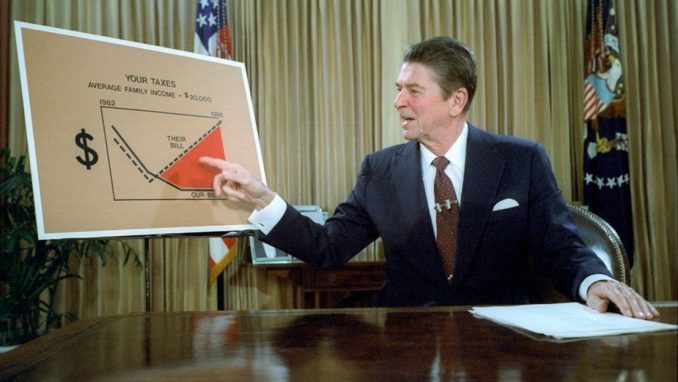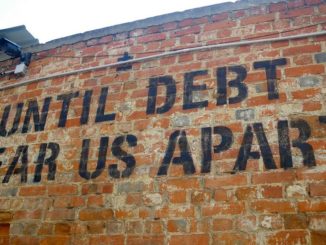
Series: Reagan White House Photographs, 1/20/1981 – 1/20/1989Collection: White House Photographic Collection, 1/20/1981 – 1/20/1989, Public domain, via Wikimedia Commons
If this kind of theoretical reasoning seems too abstract, let us think about it more practically: Any public servant, any member of government, and even the leader of a nation, has very different motivations than any private sector decision-maker. Their financial compensation is a given and their time preference is dictated by their job description.
The company owner on the other hand has no such guarantees regarding their livelihoods. Everything depends on how hard they work and how well they perform and they have no “job security” and no fixed 4-year terms. They are thus more more heavily incentivised to make choices with a long-term view and they do not have the luxury of adopting people-pleasing but eventually toxic policies, as they know they will have to account for them down the road.
Perhaps this all still sounds too philosophical, so let us look at some cold hard facts. Let us assume that the State is the only entity that can deliver “trickle down” benefits (and that is why it should be supported and granted all necessary powers). Let us accept that government officials and employees are uniquely virtuous and altruistic and that they all have devoted their lives to the service of others. And they are smarter and wiser than all of us mere mortals too, so they know what is best for us and they have the right to impose it, even if we personally object. Well, then, it would obviously follow that the solutions and the policies they develop and enforce would indeed be successful and most importantly, they would deliver meaningful advantages to those who need them the most.
For example, one would expect most Western welfare policies to work. They should support and improve the lives of the recipients. And yet, after decades of giving the “welfare state” notion a proper try, it is clear that the only outcome is short-term relief and long-term dependence, disincentives to self-fulfilment and self-reliance and the emergence of a permanent underclass with no realistic socio-economic mobility.
What of public education? If we stick to our premises about the State being unmatched in helping the people who need it the most, then we should expect to see students from the most deprived backgrounds excel (at least) at an equal rate as those more fortunate. As is painfully clear, however, we consistently see the opposite.
The same observations can be made in public healthcare, in State security and protection services, in the justice system, and most poignantly within government itself. No funds, no advantages, no benefits ever really “trickle down”. Even in countries with the largest, most powerful, best-funded and most dominating governments, those at the bottom of the ladder are destined to remain there and those at the top are all but guaranteed to do so too.
In fact, the situation we’re facing today is even more dire. As modern technologies and the ability to communicate and to share ideas and solutions has encouraged more and more individuals to think freely and to question what was previously accepted as “fact”, the need for centralised power and for control from above has come increasingly under question. Citizens have slowly but surely began to realise how they’ve been misled and even straight up lied to by those in charge of their lives. Pretty much since birth we’re all being told how essential the State is to social harmony, to law and order, to civilisation itself. And yet, as we read, as we research and as we debate more and more, deeper and clearer, it becomes increasingly obvious that the State is actually deleterious to all these things.
Governments are quickly catching on though. They realize they are facing a real risk of losing their “captive audience”, their only source of power and their sole raison d’être. Therefore, desperate to hold on to that power, to remain relevant and to justify their very existence, they just keep “fixing” what isn’t broken and they keep breaking what is already fixed.
Their handling of the economy is a great example of that. The free market, when left to its own devices, is by nature a problem solving mechanism. It constantly rebalances, it reprices and it reevaluates based on real time information. It finds gaps and closes them, it finds waste and eradicates it. But once you try to interfere with it, to put your own wise and just finger on the scale and or even to “nudge” it toward what you arrogantly believe is the “right direction”, it can become on of the most dysfunctional systems, yielding unfair and imbalanced results.
This is exactly what the State has done since time immemorial. It broke the free market by trying to fix it, and then it just kept “fixing” it. It kept intervening to solve the problems caused by earlier interventions and this is how we found ourselves stuck in this eternal vicious circle we are in today: through statist greed, arrogance and hubris.
This article has been published in the Newsroom of pro aurum, the leading precious metals company in Europe with an independent subsidiary in Switzerland.
This work is licensed under a Creative Commons Attribution 4.0 International License. Therefore please feel free to share.



